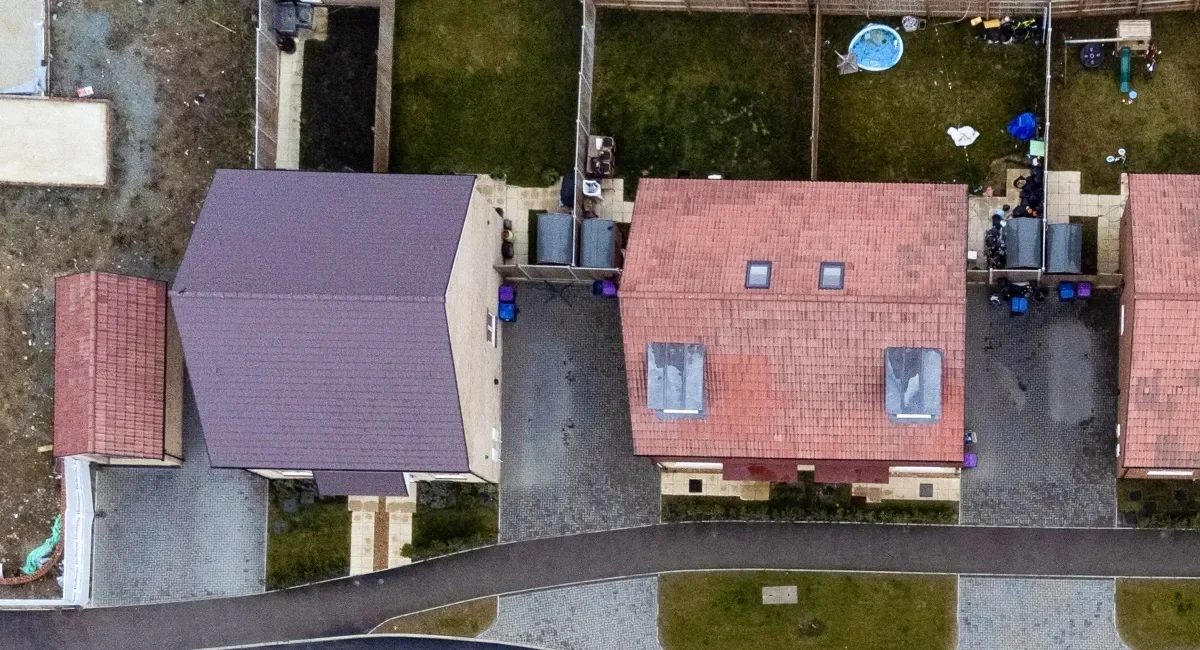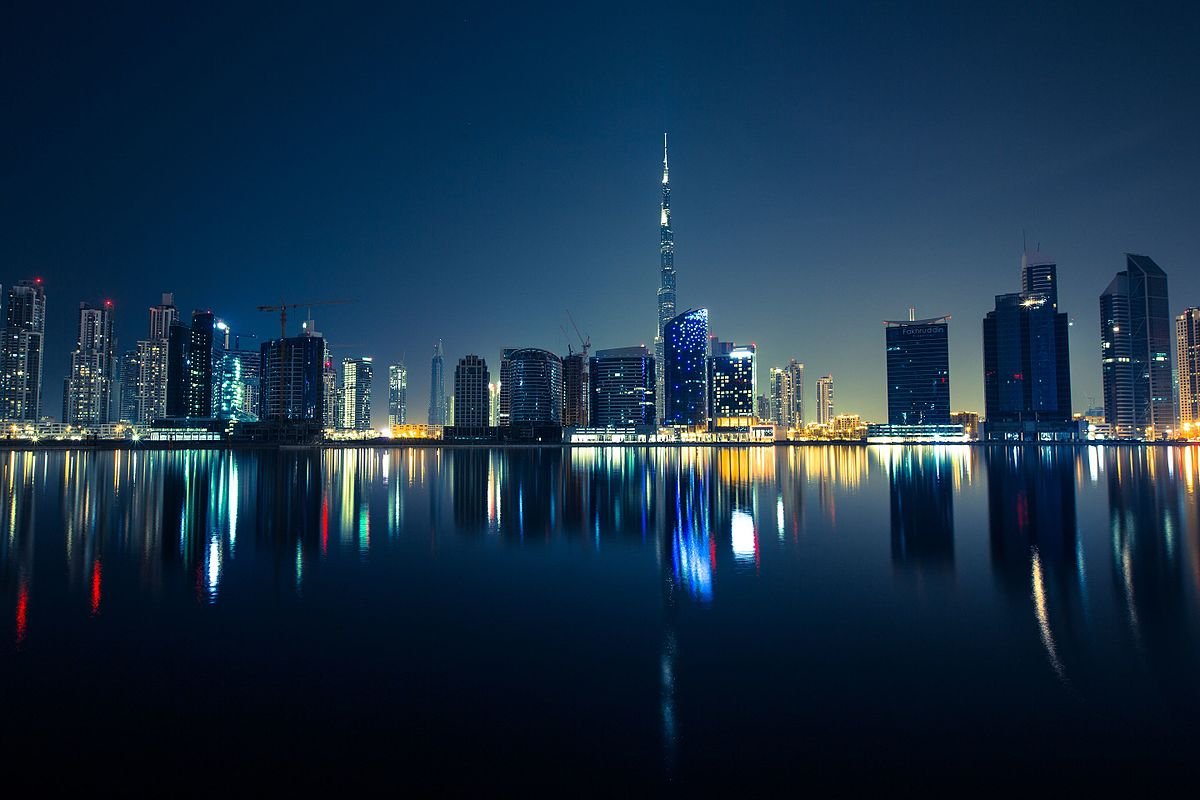Now Reading: “Expo 2020 Legacy: Transforming Dubai Into a Global Innovation Hub”
-
01
“Expo 2020 Legacy: Transforming Dubai Into a Global Innovation Hub”
“Expo 2020 Legacy: Transforming Dubai Into a Global Innovation Hub”
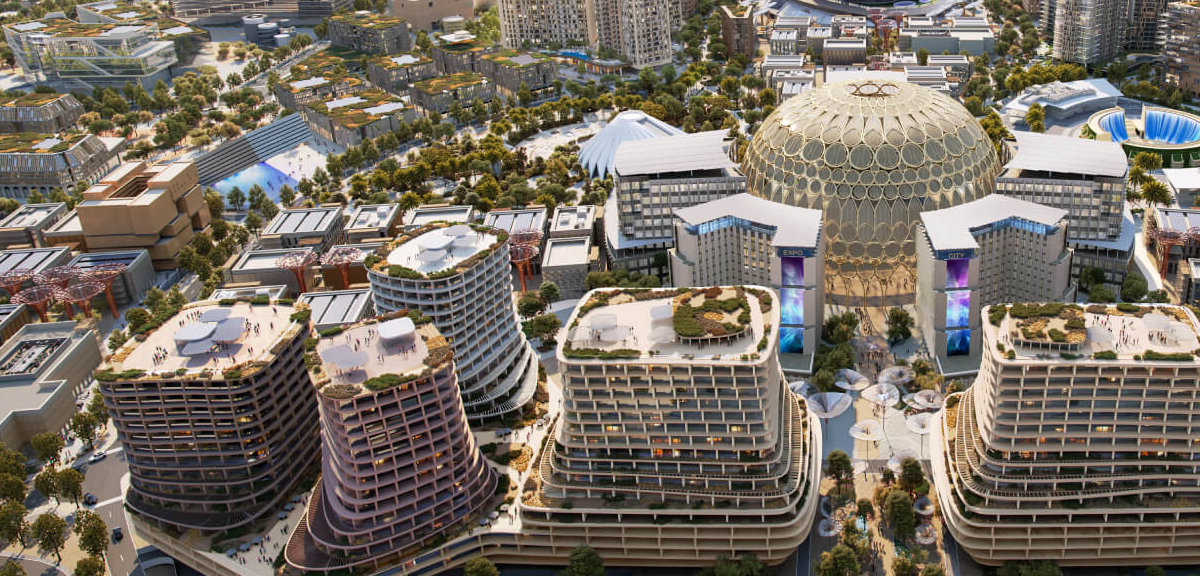
Table of Contents
When Expo 2020 Dubai concluded in March 2022, many people wondered what would happen to the massive site and the investments made during the world fair. Now, two years later, Dubai is proving that Expo 2020 was not just a grand event but a powerful catalyst for long-term development. The legacy projects born from Expo 2020 are shaping Dubai’s economy, society, and environment in exciting new ways.
In this article, we explore the key legacy projects of Expo 2020 and how they are turning Dubai into a city of the future.
What Is the Expo 2020 Legacy?
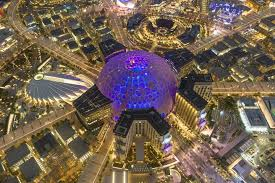
Expo 2020 was the first World Expo ever held in the Middle East, Africa, or South Asia region. The theme “Connecting Minds, Creating the Future” inspired innovation and collaboration among 192 countries. But Dubai’s vision did not stop when the event ended. The city planned from the start to transform the Expo site into a sustainable, high-tech community called Expo City Dubai.
Expo City Dubai covers the same 4.38 square kilometers as the Expo 2020 site. The development is designed as a “15-minute city” where residents can walk or cycle to work, school, shops, and entertainment within 15 minutes.
Expo City Dubai: A Sustainable Urban Model
One of the main features of Expo City Dubai is sustainability. During Expo 2020, several buildings like the Sustainability Pavilion (Terra) were designed to produce clean energy and recycle water. These structures have remained and will serve as models for future green buildings in Dubai.
Key Features of Expo City Dubai:
- Energy Efficiency: Solar panels across the site generate clean energy, reducing carbon emissions.
- Smart Mobility: Electric and autonomous vehicles are planned for transportation within the city.
- Recycling and Water Conservation: The city promotes zero waste and reuses greywater for irrigation.
- Green Spaces: Large parks and shaded areas make it comfortable and eco-friendly for pedestrians and cyclists.
These features are expected to make Expo City Dubai one of the most sustainable and innovative communities in the region.
District 2020: A Business and Innovation Hub
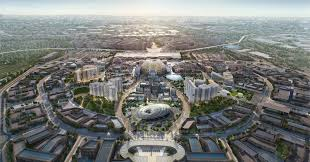
District 2020 is the new name for the commercial side of the Expo legacy. It is being promoted as Dubai’s next global business hub. Technology firms, start-ups, and Fortune 500 companies are being invited to set up offices in District 2020 to tap into the region’s fast-growing digital economy.
Focus Industries in District 2020:
- Artificial Intelligence (AI)
- Internet of Things (IoT)
- Big Data and Analytics
- Smart Mobility
- Green Technology
- Digital Healthcare
Major companies such as Siemens and DP World have already signed up to become tenants, making District 2020 a magnet for global businesses. The goal is to create 80,000 new jobs in the next 10 years, boosting Dubai’s economy and attracting global talent.
Housing and Community Life
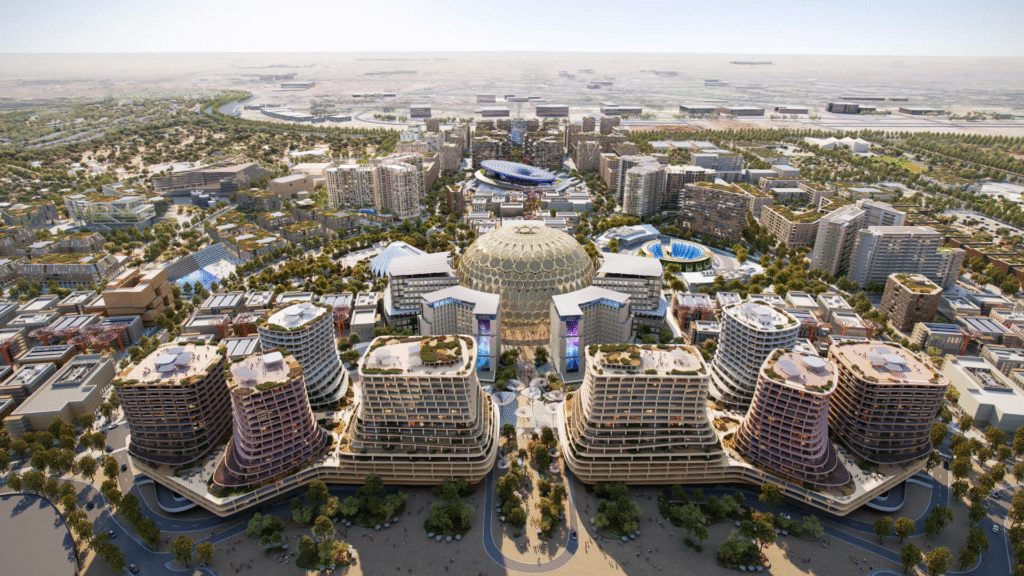
Expo City Dubai is not only about business and technology; it will also offer residential areas to house over 145,000 people. Plans include high-quality apartments, schools, healthcare centers, and entertainment facilities, ensuring that the city is livable for families as well as professionals.
The “15-minute city” concept will make life easier for residents, reducing the need for long car trips and promoting a healthier, more active lifestyle.
New Tourist Attractions
Expo City Dubai is also becoming a major tourist destination. Popular attractions from Expo 2020, such as the Al Wasl Dome, the largest 360-degree projection dome in the world, will remain open to visitors. Pavilions like the UAE Pavilion, the Mobility Pavilion (Alif), and the Sustainability Pavilion (Terra) will serve as permanent museums and exhibition spaces.
Dubai’s tourism authorities plan to make Expo City a “must-visit” site for travelers, contributing to Dubai’s ambition of becoming the most visited city in the world.
A Boost to Education and Research
Education and innovation are also central to the Expo 2020 legacy. The city is attracting top universities and research centers to open campuses and labs in Expo City. These institutions will focus on future industries such as renewable energy, space technology, and biotechnology.
By doing so, Dubai hopes to build a new generation of innovators, scientists, and entrepreneurs who will drive the city’s future success.
The Road Ahead: Dubai 2040 Urban Master Plan
The success of Expo 2020 legacy projects is a key part of the broader Dubai 2040 Urban Master Plan, which aims to make Dubai one of the world’s most livable cities. The master plan focuses on:
- Sustainable urban development
- High quality of life
- Green mobility
- Economic diversification
Expo City Dubai fits perfectly into this vision, offering a living example of what the future city could look like.
Conclusion: A Legacy That Lives On
Expo 2020 may have ended, but its impact is just beginning. With projects like Expo City Dubai, District 2020, and a host of new attractions and opportunities, Dubai is setting new standards for smart, sustainable, and inclusive urban development.
These legacy projects are not only transforming Dubai’s skyline but also its role in the global economy, making it a model for cities of the future.
Read More:- Shobha Realty Launches Its Most Luxurious Project Yet—Full Details Inside 2025



